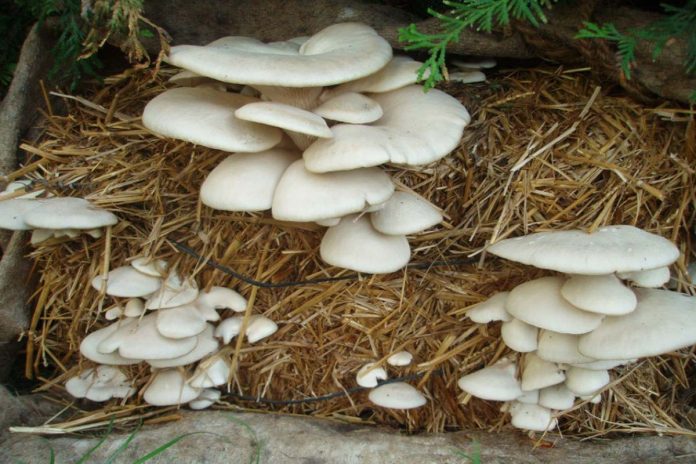Dr. Sheetal Badyal, Dr. Anamika Jamwal
World population is increasing day by day. At present, about 1.3 billion people are living in extreme poverty. On one hand, we are faced with the problem of decreasing land resources and their fragmentation on the others.there
is a need for alternate food resources for sustainable nutrition under adverse climatic conditions.
Mushroom is one such nutraceutical product which has large potential especially in Indian market. Currently, millions of tones of agriwaste are discarded, burnt or dumped which creates environmental pollution. These wastes can be used alone or in combination to make mushroom substrate. These wastes can be profitably recycled to produce nutritionally rich mushrooms.
Mushrooms are vegetables full of nutrients and therefore can make very valuable contribution to human nutrition especially where predominantly vegetarian population suffers from malnutrition. Mushroom actually utilizes this agriwaste to produce high quality vegetable which is high in protein content, rich in amino acids and has a high ratio of unsaturated fat.Mushroom seed which is technically called Spawn,is the backbone of successful Mushroom industry.Mushroom seed production is tbe scientific process which requires establishment of laboratory with necessary infrastructural and equipment facilities. Since the requirement of Mushroom seed is very higher and it can not be produced by an individual farmer,it is essential to scale up the process of Industrial level seed production.However, Mushroom cultivation can be done at various scales- At home, garden, commercial or industry.
The basic infrastructure depends on the scale of operation. The homemakers can grow mushrooms for their household needs by purchasing ready to fruit bags and keeping the bags at the cool corners of their house. Mushroom cultivation can also be taken up by building a temporary structure on the roof top of the house, thatched structure in fallow land or in a more permanent structure. A variety of mushroom like white button mushrooms, oyster mushrooms, milky mushroom etc. can be cultivated very easily. However, oyster mushroom is the mushroom with the simplest cultivation technology and is highly suitable for Indian conditions. It can be grown on wide range of substrate -paddy straw,wheat straw, sorghum straw,ragi straw,peanut shells, soyabean stalk, sugarcane wastes etc. The yield potential is very high and the variety is very rich in Vitamin B and instrumental in reducing cholesterol levels. Total cropping cycle from seeding to final harvest can last to 25-45 days depending upon variety to variety. Value addition is an important aspect of any industry. A variety of objects can be made from mushrooms which can help farmers to earn more profits apart from nutritional and employment opportunities that mushroom offers. Mushrooms are also known for their medicinal potential and are being used for cancer therapy, liver disorders, diabetes, arithritis, asthma, respiratory diseases, hypertension management, Hepatitis B etc. They have anti fungal, Anti viral and anti bacterial properties.
They are also rich in anti oxidants. Mushroom cultivation is a nutraceutical enterprise which requires variable expertise and logistic support. Hence. Mushroom cultivation can generate numerous intermediate business like Spawn production(Seed). Supply of ready raw material for cultivation like chopped and pasteurized straw, enterprise for mushroom dehydration, various mushroom product preparation, creating cold storage for mushroom crop, dried mushroom art apart from actual mushroom actual mushroom cultivation business. Mushroom cultivation is labor sensitive and for a country like India where unemployment is rampant. Mushroom cultivation creates jobs both in semi urban and rural areas. The unemployed and under employed rural youth, landless and women groups can be engaged in centralized mushroom growing farm at panchayat level. It can also be integrated with many rural upliftment policies of India. E.g National Rural employment Guarantee Scheme.( NREGS), mid day meals and anganwadi.
This integration will , have two fold benefits, firstly providing nutritional vegetables to rural poor and secondly creating employment for many who will take up the responsibility of making mushrooms available to the villagers.
Trending Now
E-Paper


